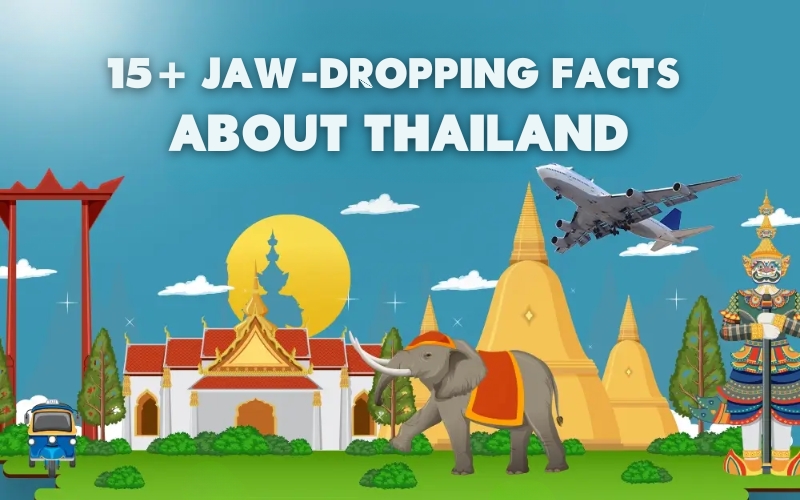
There are a few basic things that everyone should know before going to Thailand, such as when to go, where to go, or what to pack. You can easily find them online. But there are also some interesting facts about Thailand that you won’t find in any other blog posts or articles. Except this one! Some are super useful, some are a little crazy, and some can save you from some pretty awkward situations. Let’s find out!
15+ facts about Thailand you may never heard
Bangkok was once known as “the Venice of the East”
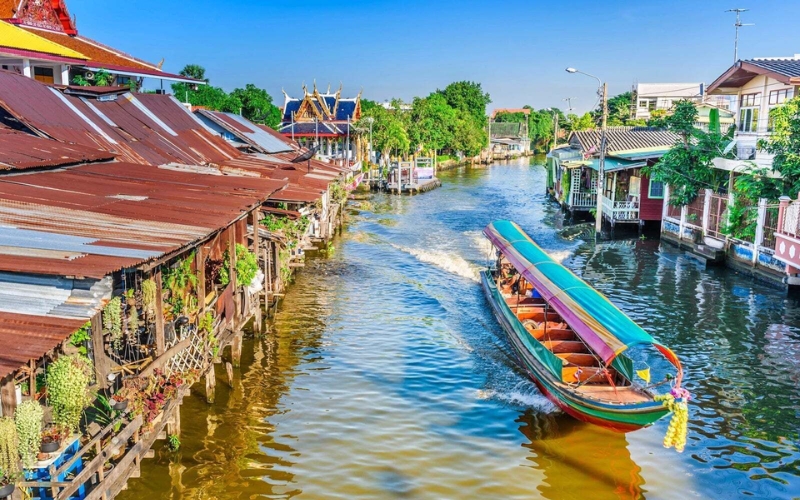
Long-tail boat cruising through a canal in Bangkok
One thing I found fascinating, and something you wouldn’t know unless you wandered around the city’s old neighborhoods, is that Bangkok was once known as the “Venice of the East.” In the past, the city had an intricate network of canals (called klongs) that people used to navigate their daily lives, much like the gondolas in Venice. Although many of the canals have been paved over for roads, some still remain, especially around Thonburi. I actually took a long-nosed boat ride through these canals, and it felt like stepping into another era. We passed wooden stilt houses, local floating markets, and even saw a few water monitor lizards sunning themselves near the shore.
There are over 35,000 temples in Thailand
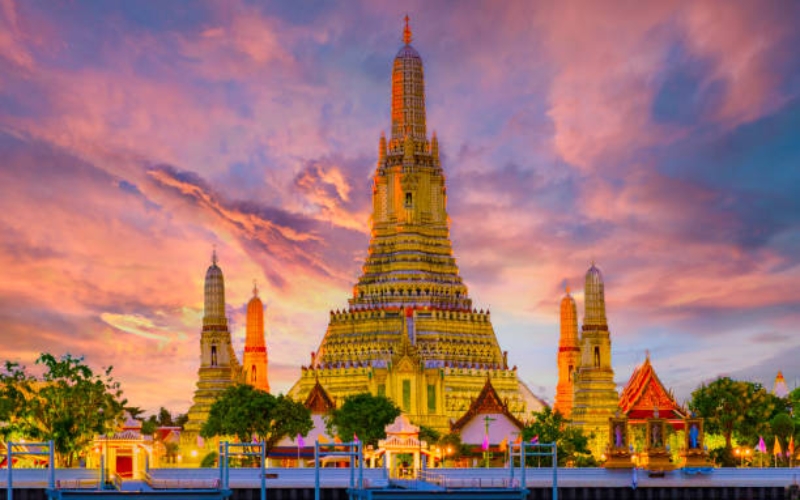
Wat Arun temple at sunset in Bangkok
Thailand is one of the most temple-dense countries in the world, with over 35,000 scattered across the country. That number may seem overwhelming until you start exploring. The small city of Chiang Mai alone has 300 temples that you can easily wander through. And no, they are not all the same. Each temple is a different shape and size, each with its own charm, story, and atmosphere. Even the smaller, lesser-known temples often become peaceful sanctuaries in the middle of busy streets.
But what most visitors don’t realize is that many remote temples are protected not only by monks but also by local ghostly legends. In rural areas, it’s common to hear stories of phi (spirits) guarding ancient temple grounds. I once visited a small temple near Nan where locals warned me not to enter after dark out of respect for the deity who “guards” the temple grounds. Some temples even mysteriously leave empty monk robes at night to signal the presence of ancestral guardian deities.
> > > With so many temples scattered across the country, it can be hard to know which ones truly stand out. So if you’re wondering where to start, here’s a guide to some of the best temples to visit in Thailand.
The world’s largest solid gold Buddha is in Thailand
Thailand is a Buddhist country, so you will see Buddha statues everywhere. Many are gilded on the outside but made of cheaper materials on the inside. However, one Buddha statue made of solid gold is Phra Phuttha Maha Suwana Patimakon. To be honest, I almost missed it myself. Wat Traimit, the temple that houses this statue, doesn’t look particularly imposing from the outside. But once you step inside, you will be overwhelmed by its magnificence – a 5.5-ton statue made entirely of solid gold, glistening in the natural light. It is about 3 meters tall and is carved with great care.
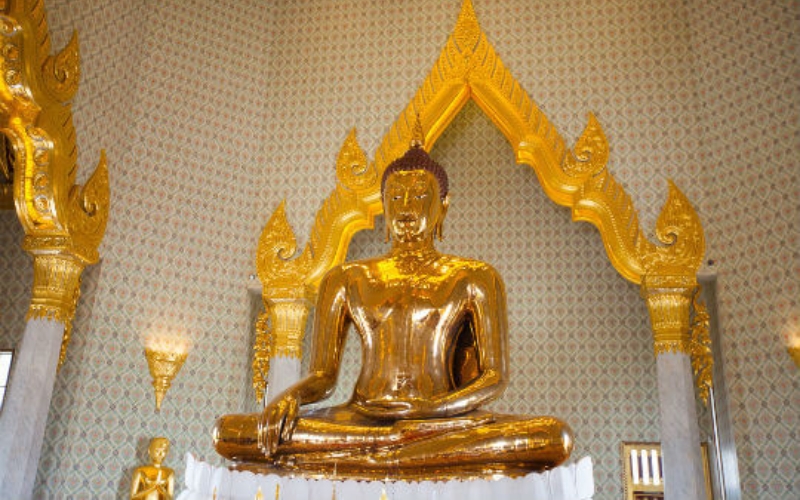
The golden Buddha statue at Wat Traimit
The statue was hidden in plaster for hundreds of years to hide its true value from invaders, so well disguised that it was forgotten and only discovered when it was accidentally dropped during transportation. It has been identified as the world’s largest golden Buddha statue and is worth up to $250 million!
Thais live in a different year
One of the most surprising things I discovered while traveling in Thailand was… I suddenly jumped 543 years into the future! The years in Thailand are completely different because Thais use the Thai lunar calendar, which is based on Buddhism, and is 543 years ahead of the calendar we use in most of the world. So while it may be 2025 on your phone, in Thailand it is 2568. This completely confused me at first.
This calendar difference is everywhere, on bus tickets, temple signs, even ATMs and bank receipts. But locals still use the Western year when talking to foreigners, so don’t worry about getting confused. However, I recommend you learn both calendars if you are planning any official activities – like renting a car or traveling during a festival.
There’s a third gender in Thailand: the kathoey
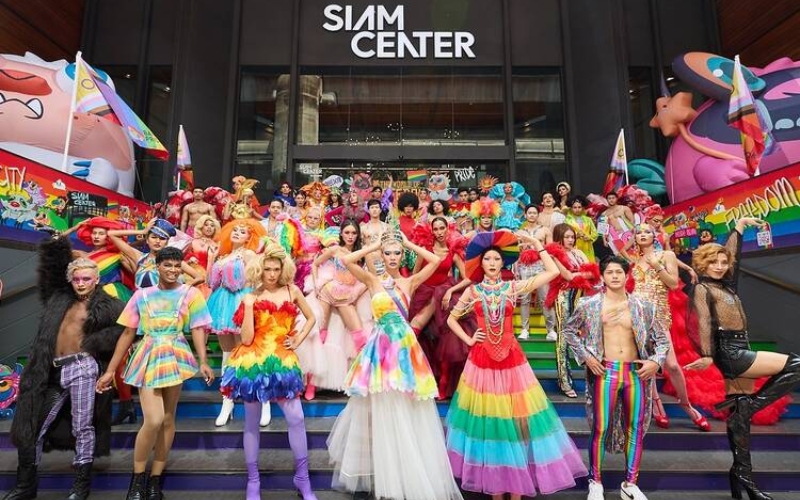
Kathoey participants at a Pride event in Bangkok
One of the most fascinating aspects of Thai culture is the presence and acceptance of kathoeys, often referred to as ladyboys – men who identify as feminine or transgender women. Thailand is one of the few countries where the third gender is not only recognized but integrated into everyday life. An estimated 1.6% of the Thai population identifies as kathoey and lives freely in Thailand. They are treated fairly, respectfully and inclusively, and there is even a month of June – Pride Month, dedicated to honoring and celebrating the LGBT community, which is celebrated with great fanfare and fanfare. For visitors, it is a great reminder to keep an open mind and embrace the richness of local identities.
Bangkok is NOT the capital’s real name
Did you know that Bangkok is not actually called “Bangkok”? Before coming to Thailand, I thought Bangkok was the official name of the capital, but a local guide surprised me with a fun fact: Bangkok is actually a nickname. Its actual full name has over 160 characters and is recognized by the Guinness Book of World Records as the longest place name in the world. Its full name is:
Krung Thep Mahanakhon Amon Rattanakosin Mahinthara Ayuthaya Mahadilok Phop Noppharat Ratchathani Burirom Udomratchaniwet Mahasathan Amon Piman Awatan Sathit Sakkathattiya Witsanukam Prasit.
Roughly translated: City of angels, great city of immortals, abode of the Emerald Buddha, inviolable city of Indra, great capital of the world endowed with nine precious stones, seat of the king, city of royal palaces, abode of incarnate gods, built by Visvakarman at the command of Indra.
Of course, no one uses the full version in everyday life – the locals just say “Krung Thep”, meaning “City of Angels”.
Don’t talk about the royal family
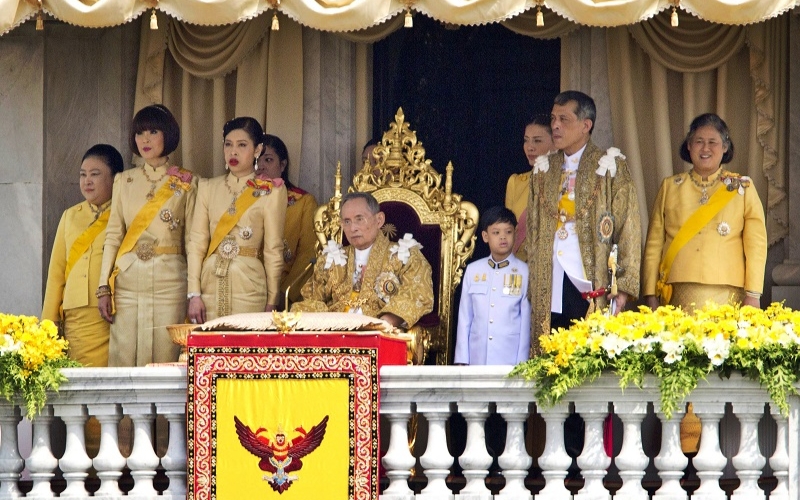
The Thai Royal Family appearance at a government building
Thai people love and admire their king and royal family. You will quickly realize this after seeing pictures of the king and queen all over the country, in public places, restaurants and even private homes. Insulting and threatening the monarchy in any way is a crime in Thailand. That means saying or even sharing anything critical or insulting about the King, Queen or members of the royal family (online or in person) can lead to serious legal consequences, including jail time. And they don’t just apply to locals. Tourists can also face legal consequences for what might seem like casual conversation or even online posts.
So be careful when communicating and it is best not to talk about this topic. Show respect like the locals do, and you will avoid unnecessary trouble and gain a better understanding of Thai culture. This is one of those things that may seem surprising at first, but is an important part of understanding and traveling respectfully in Thailand.
Thailand is home to the world’s biggest Chinatown
Bangkok’s Chinatown is actually the largest Chinatown in the world. Surprisingly, the Chinese are not the largest foreign community in Thailand. Known locally as Yaowarat, Bangkok’s Chinatown is home to over a million ethnic Chinese, often second or third generation. A visit to Bangkok’s Chinatown is sure to be a highlight of your trip to Bangkok.
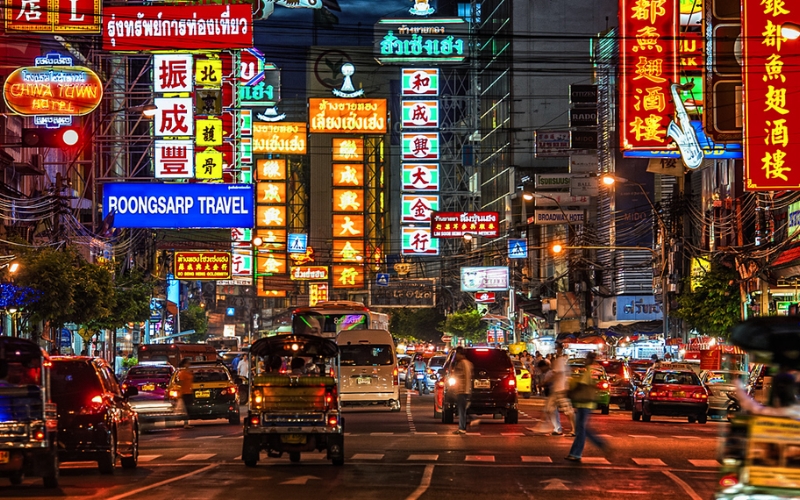
Bustling Yaowarat road at night
Yaowarat Road is the main thoroughfare through the district. During the day, the interconnected streets and alleys are a shopping paradise, offering a wide variety of goods at some of the cheapest prices in the city. At night, the area becomes a vibrant, neon-lit street food paradise. If you visit, come hungry and with an open mind. Wear comfortable shoes, bring cash (many vendors don’t take cards), and let yourself be swept away by the chaos.
> > > With so much rich culture, hidden stories, and vibrant neighborhoods, Thailand is a destination full of surprises. If you’re ready to experience it all firsthand, joining our guided Thailand tours is one of the best ways to uncover the country’s most fascinating sides while traveling with ease.
SIM cards are super simple
Wifi is generally available at hotels and cafes throughout the country, although speeds tend to be slower and quality degrades as you get further from the major cities. If you need more reliable internet access, buy a local tourist SIM card. But what few people know is that you can often get a free tourist SIM card right at the airport if you know where to look. When I landed at Suvarnabhumi Airport, I found a small booth near the arrival exit offering a free 7-day tourist SIM card with a few gigabytes of data, no strings attached. They don’t advertise much, so most travelers just walk right past.
These booths aren’t always available, though, and you can buy a SIM card at a convenience store like 7-Eleven for a cheaper price than at the airport. What’s more, most stores will even activate and set up your phone on the spot if you need help. And if you’re planning on staying a while, you can sign up for a long-term data plan with your passport via the AIS and DTAC mobile apps. Surprisingly, many SIM providers offer free streaming of local TV shows, or access to local apps without using up your data plan.
Being a pedestrian is dangerous
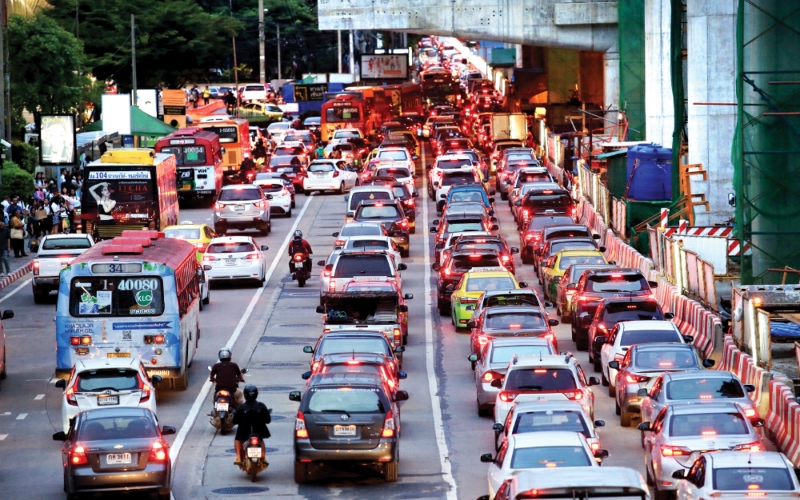
Chaotic street in downtown Bangkok
If there is one thing I hate about Thailand, it is the traffic, it is crazy and constant. And the worst part is that, as a pedestrian, you have no rights! No one stops when you want to cross the street. Furthermore, in most places, you will not find sidewalks or crosswalks, or if there are in big cities like Bangkok and Phuket, they are often uneven, crowded, or sometimes even occupied by motorbikes – yes, motorbikes on the sidewalks are a real thing here. So walking can be very difficult.
As a tourist, I would recommend always looking both ways (even on one-way streets), avoiding using your phone while walking, and always being alert. I have found that making eye contact or raising your hand to drivers makes it easier to cross the street, but you still need to be careful. At night, visibility is worse and sidewalks are often blocked by food carts, parked bicycles, or construction.
You could get scammed
One of the most common scams I encountered was the classic “the temple is closed” scam. It happened on my first day in Bangkok. I was on my way to the Grand Palace when a friendly, well-dressed local approached the entrance. He told me that the palace was closed for “royal ceremonies” and suggested I take a tuk-tuk tour instead. Luckily, I had read about this in advance and politely declined. Sure enough, the palace was open as usual. The tuk-tuk driver would probably take me to expensive shops or fake gem shops for a commission. So be wary of these scams and always check Google for opening hours.
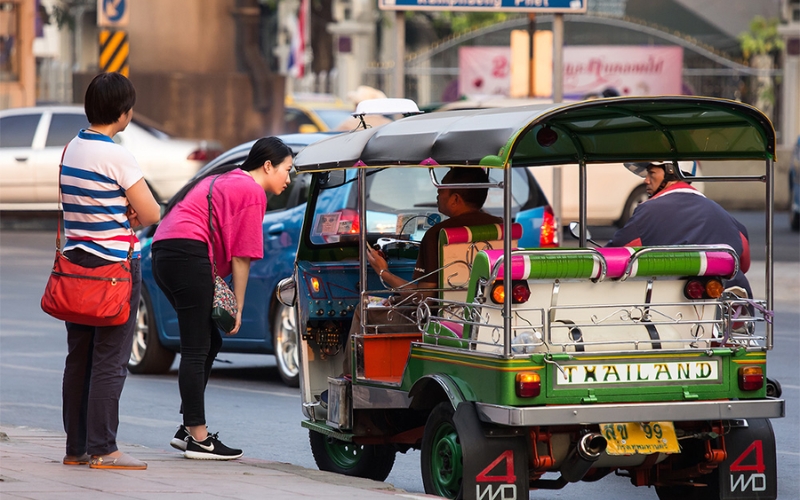
Common tourist scams to watch out for
I have also heard of tourists being overcharged by taxi drivers because they don’t use meters. Politely ask to use the meter, or use a ride-hailing app like Grab to avoid confusion. Thailand remains one of the safest and friendliest countries I’ve ever been to, but scams are common so be careful, especially if the offer seems too good to be true or someone is too eager to help. Always trust your instincts, do your research, and don’t be afraid to walk away.
Don’t flush paper in the toilet
If you have never traveled to Asia before, you may be a little put off that in most places you will be asked to throw used toilet paper in the trash instead of the toilet. The drains in Thailand are narrower than in many other countries, so they can easily become clogged if you flush toilet paper.
The drainage system is simply not designed to handle this. So you should never throw toilet paper down the toilet, even in airports or hotels. Instead, throw it in a small trash can next to the toilet or use a small faucet next to the toilet to flush it away. It may feel strange at first if you are not used to it, but it is actually quite hygienic once you get used to it. Many travelers end up liking it!
There are nearly 1,500 islands in the country
One thing many visitors don’t realize before arriving in Thailand is the sheer number of islands there—nearly 1,500, 1,430 to be exact. Thailand is a nation of islands, not just Phuket or Koh Samui. Thailand’s islands range from vibrant party hotspots to quiet, untouched paradises that feel like private getaways. Not all of them even have official names, and many remain largely uninhabited or completely off the tourist radar. In fact, some of the smaller islands in the Andaman Sea and the Gulf of Thailand are so remote that even locals refer to them by their coordinates or nicknames given to them by fishermen and divers.
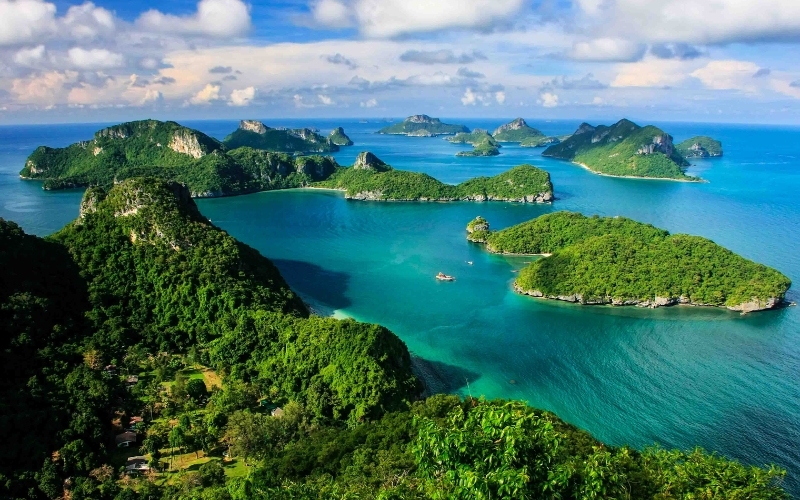
Island-hopping adventure in Southern Thailand
When I first arrived in Thailand, I thought I would only be in Phuket for a few days and maybe stop by Phi Phi. But after chatting with a few locals and tour guides, I realized I was missing out on a lot. Thailand still has dozens of untouched, undeveloped islands. But be careful, some private or military islands are only accessible with special permission, and some islands appear and disappear depending on the tide. Ask around, especially with locals or on forums, do your research, and be prepared to take a boat to somewhere you’ve never heard of, which could make your Thailand trip memorable.
> > > With nearly 1,500 islands to choose from, Thailand is a true paradise for beach lovers and adventure seekers alike. If you’re looking to experience both the country’s stunning natural landscapes and its most beautiful island getaways, our Thailand in 15 Days with Natural Exploration and Island Hopping tour is the perfect way to see it all without missing a beat.
The national anthem is played daily
The monarchy is a big deal in Thailand, and many Thais are very proud of their country and culture, so it is understandable that they sing the national anthem twice a day. If you are in a public place like a train station, market, or even a park at 8am or 6pm, don’t be surprised if people suddenly stop what they are doing to stand at attention while the Thai National Anthem is played.
The Thai National Anthem is also played before any movie, play, or cultural performance. What I find interesting is that everyone joins in naturally without any announcement or prompting, it is simply ingrained in the culture. It is one of those small but powerful moments of Thai pride and unity that you won’t experience anywhere else.
All of the temples pictured on Thai baht coins are in Bangkok
One of the most impressive things I learned was that the temples depicted on Thai baht coins – yes, those tiny designs – are all real places and are all located in Bangkok. You can even visit them all in one day.
1 baht coin – Wat Phra Kaew (Temple of the Emerald Buddha, inside the Grand Palace)
2 baht coin – Wat Saket (Temple on the Mountain)
5 baht coin – Wat Benjamin Bophit (Temple of the Marble)
10 baht coin – Wat Arun (Temple of the Dawn)
It’s illegal to step on Thai currency
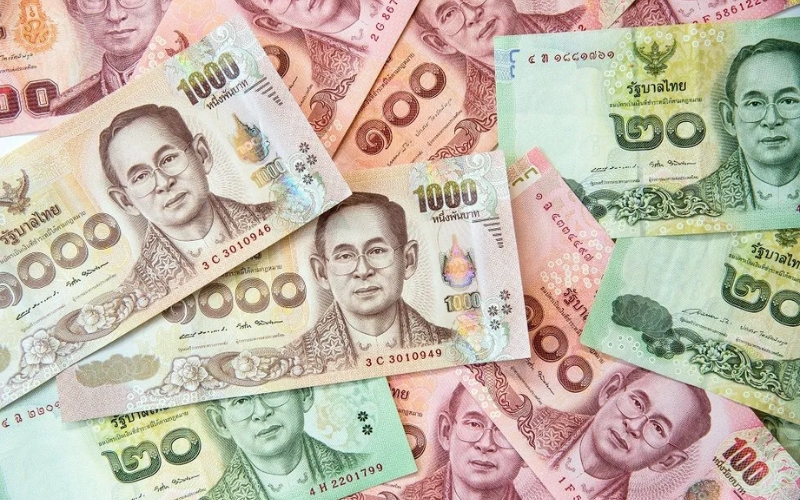
The King’s image on Thai money
This fun fact about Thailand is also a useful legal tip. The reverence for money stems from the respect people have for the king. Since notes and coins have the king’s face on them, stepping on them is not allowed and can actually land you in jail. Even throwing or playing with money is considered rude and disrespectful. When you travel here, treat Thai money as you would a flag or sacred symbol, because that is exactly what it means to many locals. Be careful to keep your money neatly in your wallet and avoid crumpling it.
Red Bull is from Thailand
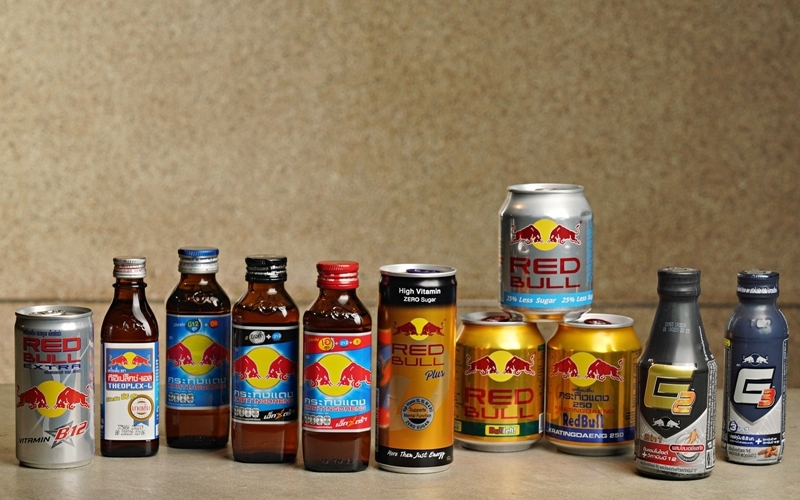
Comparing Thai Red Bull with the international version
One of the most surprising things I learned while traveling in Thailand was that Red Bull, the energy drink that can be found all over the world and is now worth billions of dollars, was actually invented here. That’s right, the original version is a Thai product called Krating Daeng, which literally means “Red Bull.” It was created in the 1970s by a Thai entrepreneur named Chaleo Yoovidhya, and quickly became popular with truck drivers, local laborers, and people who needed a quick energy boost during long workdays.
Interestingly, Krating Daeng tastes quite different from the version of Red Bull we’re used to seeing. It’s a little sweeter, not carbonated, and comes in a small glass bottle instead of a can. You can find Krating Daeng almost everywhere in Thailand – convenience stores, gas stations, even roadside stands. Prices are also extremely affordable, usually under 20 baht (about 50 cents).
Funny old laws
Every country has its fair share of weird, outdated laws that have not kept up with modernity and now seem ridiculous. Thailand is full of surprises, but one thing that surprised me was how ridiculous some of the laws can be.
For example, did you know that it is illegal to go out in public without wearing underwear? Or Using a durian as a weapon is illegal and the penalty is determined by the number of thorns that pierce the victim. To be honest, I have not tried this (and I don’t recommend it!), but hearing this from a local guide on a night tuk-tuk tour around Bangkok made us all laugh. This is one of those old laws that probably isn’t enforced anymore, but it’s still on the books.
Another thing? You can’t drive topless. While many tourists may find these oddities, it’s worth keeping an eye out for – because in rare cases, you could get stopped and fined. While these laws may sound funny, they’re part of what makes Thailand unique to travel to.
In the past, all Thai men had to become Buddhist monks
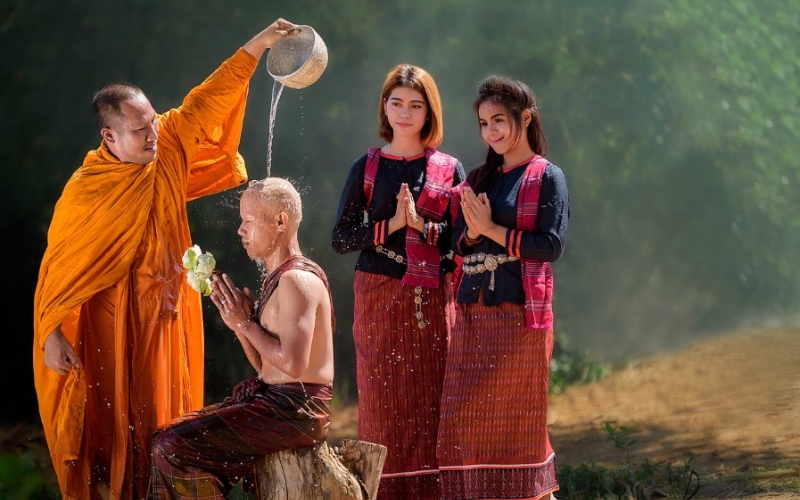
Procession of novice monks at a rural temple
One of the most significant cultural traditions in Thailand, but one that often goes unnoticed by tourists, is the custom of Thai men temporarily becoming Buddhist monks at some point in their lives. Traditionally, this took place before marriage and was considered a rite of passage. Even today, many families still take the practice very seriously. It is not uncommon to see taxi drivers, office workers, or even university students who have spent time in a monastery, even if only for a few weeks.
We hope this article has helped you discover some of the interesting, surprising and important things to know before travelling to Thailand. Thailand is more than just golden temples and island sunsets – it’s a land of cultural depth, unexpected quirks and hidden gems that make every trip unforgettable. Are you planning a trip to Thailand and need help creating the perfect itinerary? Or still have questions about what to prepare? Contact us anytime – we’re here to help make your trip as smooth, enjoyable and memorable as possible.
Read more:
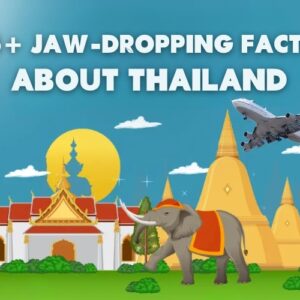

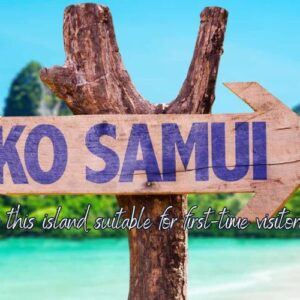

The fun fact about Thailand having more than 40,000 Buddhist temples is wild. I’ve only seen a few in Bangkok and Chiang Mai. Which temple would you say is the most impressive for first-time visitors?
Dear Giovanna,
Thank you for sharing your thoughts! Thailand’s temples are truly breathtaking. For first-time visitors, we usually recommend Wat Pho in Bangkok to see the Reclining Buddha and experience the birthplace of Thai massage. In Chiang Mai, Wat Phra That Doi Suthep is another must-visit, offering golden pagodas and stunning views over the city.
Both temples give you a wonderful introduction to Thailand’s culture, and there are many more hidden gems worth exploring. If you’d like, we’d be delighted to help you design a customized itinerary that combines temple visits with other unforgettable experiences. Contact us today and let’s start planning your journey!
Best regards,
IDC Travel Team
Wow, I just stumbled upon this post and mind officially blown! The fact about the local calendar year is different. Now I have a whole new perspective on when to go there. Thanks for such a delightful, wild, and eye-opening read!
Hi Sienna, we’re so glad you enjoyed it. It really is fascinating how different calendars shape the way people experience time, makes travel feel even more special!